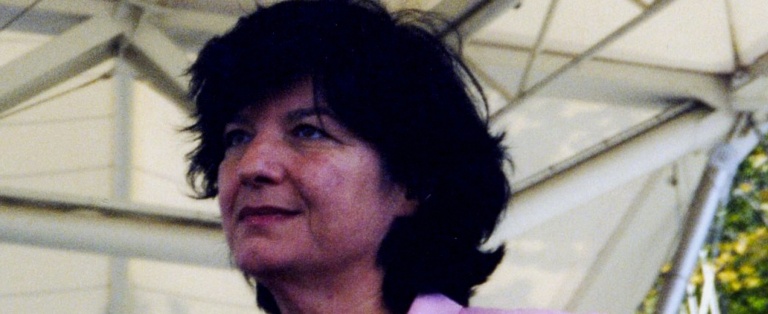Difference and Intensive Time-Spaces
Pascale CRITON, composer (Art&Fact, associate researcher LAM, Pierre et Marie Curie University)
How difference is at work in musical process? The characteristic of a musical time-space, whether sound is the result of material sources or generated by machines, is to give consistency to previously unheard, without identity sound individuations. Transitivity and heterogeneity more than stable continuities retains our interest here, connecting dimension of different type, setting indiscernible areas and couplings that allow to abandon linear models and move from one category or different « middle » to another.
We will discuss the differenciation and consistency process at work in “material - forces” relations, a concept used by Gilles Deleuze to describe “paradoxical” musical spaces and temporalities. The “material-forces” relations - active in the music thought corpus - cover many fields and open new connections. Intensive time-spaces and autonomous signs practices redistribute the order of sensation in view to form free enunciations: they make possible to experiment ways of feeling, performing and becoming.
I will expose several transitive, heterogeneous – sensory, gestural, spatial – situations linked to my recent research and works.
References:
(1) Deleuze (G), « Rendre audibles des forces non-audibles par elles-mêmes », Le temps musical, Ircam 1978, in Deux régimes de fous. Textes et entretiens, 1975-1995, D. Lapoujade (ed.), Paris, Minuit, 2003.
(2) Criton (P), “ L’hétérogénèse sonore” in Gilles Deleuze. La pensée-musique, Criton (P) & J-M Chouvel (J-M), (co-dir.), CDMC, Symétrie (2015).
(3) Criton (P), "Nothing is established forever" in The Guattari Effect, Alliez (E) & Goffey (A), (dir.), Continuum (2011).
(4) Criton (P), “O ouvido ubiquista: escutar diferentemente », Cadernos de subjetividade, Pelbart (PP), (dir.), University Catholic Pontificale of Sao Paulo, Brazil (2012).
(5) Criton (P), “Listening otherwise: playing with sound vibrations”, ICMC 2014 Proceedings, Athens (2014).
(6) Deleuze (G), What is the creative act ? conference on cinema given at the FEMIS, 1987.
https://www.youtube.com/watch?v=s9Rq4-d5Ies)
Pascale Criton
Pascale Criton explores sound variability, infrachromatism, multi-sensoral receptions and the spatialization of listening. She studied composition with Ivan Wyschnegradsky, Gérard Grisey and Jean-Etienne Marie, received a musical computing course for composers at IRCAM (Paris, 1986) and earned a PhD in musicology (1999). Artistic director of Art&Fact, she initiates concerts combining music, architecture and materials inviting the public to experience new sound representations. She is currently an associate researcher at the Lutherie Acoustique Musique laboratory (Pierre and Marie Curie University, CNRS). Her encounter with Gilles Deleuze determined her interest in philosophy and she became one of his interlocutor concerning music from 1974 to 1987. She recently edited Gilles Deleuze, la pensée-musique, (co-dir), Cdmc, Symétrie (2015). Website: www.pascalecriton.com.
